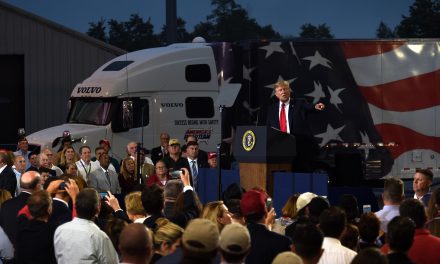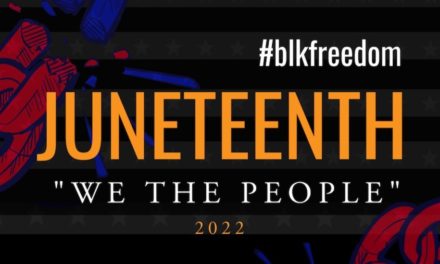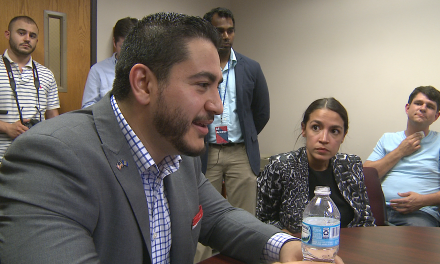It’s an unprecedented budget year for Gov. Gretchen Whitmer and the Michigan Legislature, who have, for the first time in many years, a surplus of funds stemming from federal COVID relief packages and an uptick in the state’s economy. Whitmer’s 2023 fiscal budget of $74 billion, announced recently, was a record-setting number, but just how does Michigan plan to spend it?
One Detroit contributors Stephen Henderson and Nolan Finley come together once again for a lively discussion about Whitmer’s proposed budget — what’s included and what critics and experts think about her plan — as well as some of the striking similarities the two believe Whitmer’s budget has to former Michigan Gov. Rick Snyder’s wish-list. Plus, they posit whether the funds will help fix some of Michigan’s biggest challenges and just how much will be passed through the Legislature in an election year.
Full Transcript:
Speaker 1: A state budget surplus and federal pandemic relief funds are driving Gov. Whitmer’s proposed seventy four point one billion dollar budget for the coming year. Among her recommendations are bonuses for teachers and frontline workers and funding increases for education and infrastructure. One Detroit contributors, Nolan Finley of the Detroit News and Stephen Henderson of American Black Journal, sat down to discuss the record-setting budget.
Nolan Finley: Steve, this certainly is an unusual budget here in Michigan. Lansing is awash in money, they’ve got more money than they know how to spend between the surplus, that the Michigan that Michigan brought in on its own and the billions of dollars in federal money that came flooding in in Covid 19 relief.
Nolan Finley: So they’re in an unusual situation normally we’re talking about, what do you cut? What do you cut, what do you cut and you get the sense that these people under a great deal of stress trying to figure out how to spend this much money.
Stephen Henderson: Yeah, it was really fun watching the reactions of the press core there. You know, as the governor was speaking and basically she just went through every it was like an Oprah show, you know, you get a car and you’re getting more money and you’re getting more money. But what it reminded me of was a conversation I remember having with Rick Snyder when he was first running for governor, and he said, you know, they’re going to have to be some really hard choices made in the early years.
Stephen Henderson: We’ve got this imbalance and we’ve got to take care of it, and he said, but once we do that, I think we can start to really reinvest in things, right? He said he talked about the kind of investment budgets that he thought would be possible in the out years. Now, he never got there. But if you look at this budget from Governor Whitmer, I think it includes a lot of the things that he was talking about.
Stephen Henderson: Increases to the foundation allowance for school districts, increases for higher ed. He did say that once revenues recovered and we got out of the ditch we were in, he would reconsider things like the pension tax he imposed or the cutting of the IPC. She’s doing all of that in one fell swoop.
Stephen Henderson: And again, it’s because there’s all this money coming from the federal government. But it’s also because, you know, I mean, the economy here is actually doing quite well despite the, you know, the Covid disruption and the interruptions.
Nolan Finley: The caution here is you have enduring money, money that’s coming in through higher tax rates, revenue, economic growth and from the cuts that were made during the pandemic when we thought revenue would drop off a cliff. And then there is the one-time money, the billions of dollars in Covid relief money.
Nolan Finley: It’s important to keep those in two separate piles. The enduring money, the money we expect to come back year after year after year. You could spend that too on new programs, new initiatives, ongoing investments in in education and infrastructure, worker training, all the things that are on the wish list for Michigan in the needs list for Michigan. The one-time money which is right now, the bigger pool.
Nolan Finley: But that money has to be kept separate and spent on one-time things. Things that won’t they won’t require sustainable funding from the Treasury because that money won’t be there and that will lead to cuts in other places or tax hikes. One thing I don’t think Rick Snyder would have done that the governor proposes is restore the exemption on public employee pensions. He was very clear that just wasn’t just a revenue measure, that that was about tax fairness.
Stephen Henderson: Well, I mean, all taxpayers aren’t created equal either. And I think the whole idea of exempting public pensions from taxes was that these are people who don’t have the opportunity to make the kind of money that people in the private sector do. They make sacrifices all the time throughout their careers to serve the public, their servants.
Stephen Henderson: And so the idea was to sweeten the pot, to incentivize people to do that more by giving them something that they could look forward to. It doesn’t make sense to have done that. I mean, especially when he gave this gigantic corporate tax break that again helped take revenue out of the Treasury. Think of the number of teachers who are walking away from the profession right now.
Stephen Henderson: You can’t get people to staff classrooms, you can’t get people to drive busses, you can’t get people to clean schools. All of these, these things that we really need people doing right now that they don’t want to do taking, you know, taking that, that pension tax and getting it away from it is one thing you can do to tell people, hey, here’s another reason to do it. But you’re right. He said he thought it was a fairness issue, and I think he was wrong about that.
Nolan Finley: And if we’re going to talk about it, you should talk about it for all retirees. You have a lot of retirees who haven’t enjoyed, sort of wages that public employee employees have who are getting by on part-time jobs and getting by on what meager savings they have, they should not have to support these, these folks that have benefits they don’t have.
Nolan Finley: All taxpayers should enjoy something from this windfall. The state as and, you know, probably more important, we should invest it in infrastructure and other things. We have a terrific need for.
Stephen Henderson: I mean, there is a lot of money in this budget for investments in infrastructure and other things like that. And you know, the conversation that I’ve been able to have with people about this budget. Everybody seems to think that it’s pretty particular in the way it spends the money that it doesn’t go and promise long term spending for short term funding that it targets the things that are going to be ongoing with money that we’re making that not this, not this, not this federal money.
Stephen Henderson: And so I think the big question that remains is whether, you know, whether the Legislature, which is of course, controlled by Republicans who don’t seem automatically opposed to these things but have their own list of things that they’d like to do. How do you reconcile those things in an election year and whether you know, whether you can get that through?
Nolan Finley: Like the investment in pumping stations and trying to do something about this flooding that has plagued Metro Detroit over the last few years. There’s money in that. I quibble with the fact that it’s taken out of Covid relief money.
Nolan Finley: But Covid money should be spent on Covid relief and the other money there’s, you know, as we said, there’s plenty to go around. I think there’ll be a lot of give and take here. I think there’ll be the Legislature will be concerned and make sure this money isn’t being spent to buy votes for the upcoming election. But I think they’ll come to an agreement.
Stephen Henderson: Yeah. So we’ll see, we’re out of time, but then we’ll talk more in the future.
Subscribe to One Detroit’s YouTube Channel & Don’t miss One Detroit Mondays and Thursdays at 7:30 p.m. on Detroit Public TV, WTVS-Channel 56.
Catch the daily conversations on our website, Facebook, Twitter @DPTVOneDetroit, and Instagram @One.Detroit
View Past Episodes >
Watch One Detroit every Monday and Thursday at 7:30 p.m. ET on Detroit Public TV on Detroit Public TV, WTVS-Channel 56.




